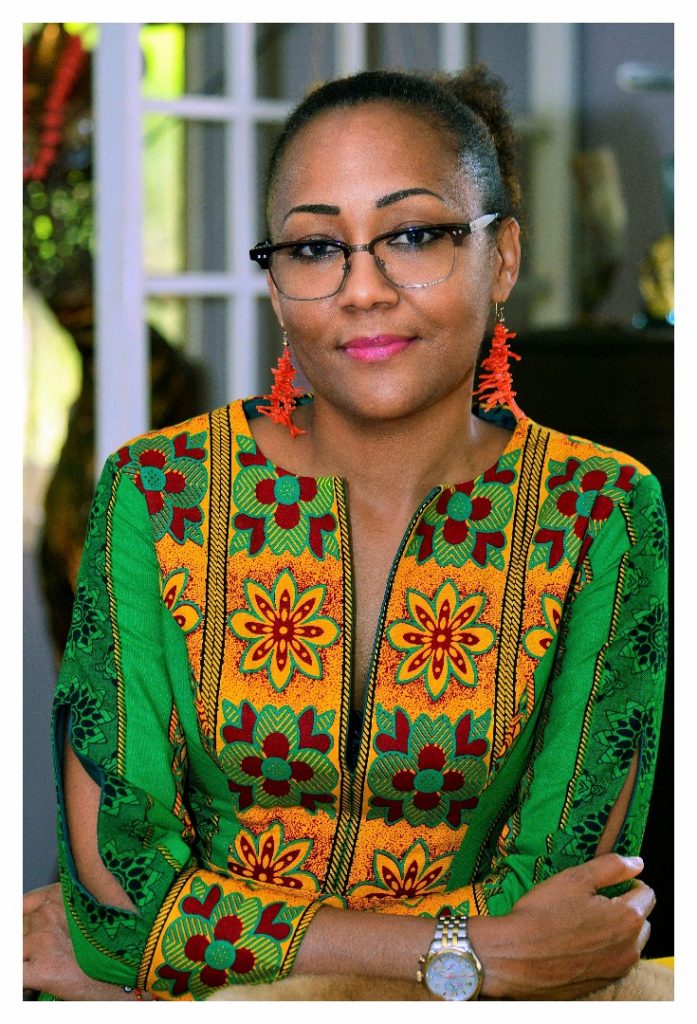Available statistics on Nigeria’s housing shortage is worrisome. With a population of about 180 million, an annual population growth rate of 2.8 per cent and an annual urban population growth rate of 4.7 per cent, influential data estimate the country’s housing deficit at over 17million.
UN findings reveal that about 1.6 billion people live in substandard housing and over 100 million are homeless, the world over. More worrisome is the fact that over 100 million Nigerians are considered to live in substandard housing, across the nation.
In this exclusive interview with Amazons Watch Magazine, Ibieno Ogolo, Chief Responsibility Officer for the EKO Development Company, that is involved in the development of high-end residential properties, such as the Eko Atlantic City, highlighted some of the challenges in Nigeria’s real estate industry, and some of the ways the deficit in the country can be addressed. Ogolo also discussed the impact of her prime real estate projects in Africa. Excerpt:
Please tell us about your background.
I’m currently the Chief Responsibility Officer for the EKO Development Company. The Company started operations in 2013.
My overall career, however, spans over 18years starting with my degree in Computer Science and Mathematics from the University of Port-Harcourt. Upon graduation, I held roles in financial services (Retail, Wealth Management and Investment Banking).
In 2008, I made the move to the Public sector as Investment Promotions manager for the Greater Port-Harcourt Development Authority and rose through the ranks to Head of Public Affairs.
I also have advanced degrees in Business Administration with a core in Finance from the University of Liverpool and an MSc in Investment Promotions and Economic Development from the University of Edinburgh.
You have a track record, with leadership experience in Nigeria’s real estate sector. Please tell us about your career journey, vis-à-vis your successes and accomplishments.
My career journey spans over eighteen years. It commenced in the Nigerian financial sector with a bank called City Express Bank Ltd now United Bank For Africa. Within the commercial banking industry, she held several leadership roles across operational, marketing and credit administration functions leading teams to deliver key initiatives. It is worthy of note that my Managing Director was a woman.
In 2003 she moved unto BGL Plc where she grew to become Head of Private Wealth until her departure. Leveraging on her investment strategy and financial experience, Ibiene became the Head of Public Affairs for Greater Port Harcourt City Development Authority encapsulating media, investment promotions and community relations for one of the major real estate development projects in Rivers State. The agency of government was again headed by another strong female.
Since joining Eko Development Company Ltd in 2013, Ibiene has successfully raised funds internationally and locally and is responsible for the development of one of the new prestigious landmark aptly called “Azuri Peninsula” on the Marina District of the Eko Atlantic City; which will upon completion transform the entire skyline of Lagos.
Growing up amongst 5 siblings teamwork and the ability to be a team player was naturally honed, being the first daughter of the family, the responsibility that comes with it as many of us can relate birthed her leadership skills and pursuit to achieve and surpass set goals. At a young age the realisation that she is a yardstick to which her sibling’s achievements were and would be measured, became the driving force to her determined focus to always keep the bar up. This attitude to always excel in life has shaped her to be the woman she is today. The daughter of a former Naval Officer and lover of nature, Ibiene grew up around boats and credits the times sailing in teams with her Dad and later solo as an integral place where she further developed critical skills of teamwork, personal resilience, attention to detail and excellence that has largely contributed to her professional success.
While seemingly a very busy, workaholic, Ibiene recognises the importance of knowledge transfer, finds time within her busy schedule to mentor and coach up and coming high potential talent to successfully navigate Nigeria’s corporate maze. She also is very interested in the development of the female child and women at large.
She finds time to kick back and relax, she spends her vacations travelling the world and her love for adventure and travel are showcased in her travel and living blog “Ibiene.com”, which also happens to capture and hint her love for photography and the good things of life.
What are some of your experiences, working as a woman leader in the male-dominated real estate sector?
It is very difficult to shake the feeling of always being under a microscope, and often times having to prove the competence that is inherently earned by male colleagues from just turning up to work.
However, my approach is to go into work with the attitude of always perform at my best. At the end of the day, it’s the execution that counts, and you get respect from the quality and timeliness of your output. I mentor a couple of upcoming female talent and I’m pleased that they are starting from a higher level of acceptability than where we were when I started out.
I’m glad that we now have a growing example of trailblazing females within the sector. I additionally mentor a couple of upcoming female talent and I’m pleased that although we still have some hurdles to jump, they often times are not confronted with some of the issues that were commonplace when I started out.
Diversity of perspective, approach and experiences is the hallmark of the most successful organisations, my prayer is that this will be reflected and carried on within the Nigerian real estate sector.
Nigeria’s housing deficit is estimated at 17 Million, which places the country among the league of countries with a huge housing shortage, in spite of the various policies and strategies adopted by the government to address this worrisome trend. What is your take on this trend in Nigeria’s real estate sector?
It’s extremely disheartening that we have allowed things to get to this level. The reality is that not enough housing units have been built through the years, and even if we now commence building a million housing units per annum it would take us another17 years to close this deficit and remember we still have a population growth rate of about 3% per annum. So if we take that into account the numbers are still growing.
Government policies as related to housing weren’t consistent or effectively executed in the past. The good news though is that the government has realised that it cannot do it alone, and space is now opening up for professional developers who can build in the sort of volumes required to halt the widening gap.
I’m extremely glad that Eko Atlantic is also a major agent in closing the housing gap. Upon completion of EKO Atlantic, it is expected that over 200,000 units would have been added to the housing stock. It is my hope that the template of EKO Atlantic would be replicated across the country to ensure we have planned cities and housing that works.
In your opinion, how can the country effectively tackle its housing challenges?
As I mentioned in response to your earlier question, we do have a gargantuan task ahead of us to tackle the horrible housing deficit we have allowed to take root.
To tackle some of the challenges I think we would need to apply a myriad of measures including reforms of the Land Use Act, Building regulation standards – development and enforcement, Housing development financing and mortgages, Adoption of new-age materials/ technologies for construction.
Regarding Land use act reforms, it is still tough in areas of acquiring land, title deeds, and getting permits for construction. The bureaucracy is still overwhelming, and cases of multiple allocations of the same land still persist. Reducing the number of hoops that developers have to scale through would go a long way in attracting serious investors and developers into the market.
Issues of financing also are tied to Land use act, it is difficult to even begin to speak of mortgages and other types of housing finances if there is no proper legal document (i.e. Title deeds) confirming land ownership. In other climes, the property serves as legitimate collateral to obtain funding that amongst others can be used for part or full funding of developments.
Going further on financing, there is also a need for the government through the central bank to set-up a construction fund that developers can access at more favourable interest rates. The pension funds can also be opened up to further invest in real estate and the housing stock.
A key area that can also go a long way in reducing the housing stock relates to the way we currently build in Nigeria. Today we use way too much concrete, Iron rods and pillars; which make our buildings too expensive to construct. In most of the west, you have a hard outer shell, and the interior is from cement or wood particle-board. Focusing on the material and components used for construction will greatly reduce the cost of building and by default deliver the much-touted about ‘affordable housing’.
Your company has been involved in the development of high-end residential properties, such as Azuri Peninsula, and the Eko Atlantic City, which is expected to create a new economic capital for Africa. Please tell us about your projects and their long term impact in the country.
This is a great question, the Azuri Peninsula and Eko Atlantic city are examples of how cities and projects should be planned and delivered. The City is designed to be a world-class development that will include an Industrial Hub, World-class medical centres that would deliver the best of health care and halt Nigerian medical tourism, Universities and other centres of research, learning and development. It also includes plans for a technology hub. A couple of Nigerian premier Banks and financial institutions are already committed to having their headquarters at Eko Atlantic City. The design brings to bear the relationship between works and live by this we have a City that encourages a work-life balance by taking conscious steps to ensure the environment encourages walking, greens and the love for nature.
Eko Atlantic City is expected to be home and place of employment to half a million people. I think the array of activities and companies that would inhabit the city already gives a flavour of the type of impact we would deliver long term.
As mentioned before, I already see Eko Atlantic as the place that would be the best standard that others within and outside Nigeria would come to learn from and emulate.
My project the Azuri Peninsula takes construction a step further in that we ensured that our designs are adapted to suit the location and lifestyle of Nigerians, Africans with a feel of the west. The quality of build is like no other with its environs.




